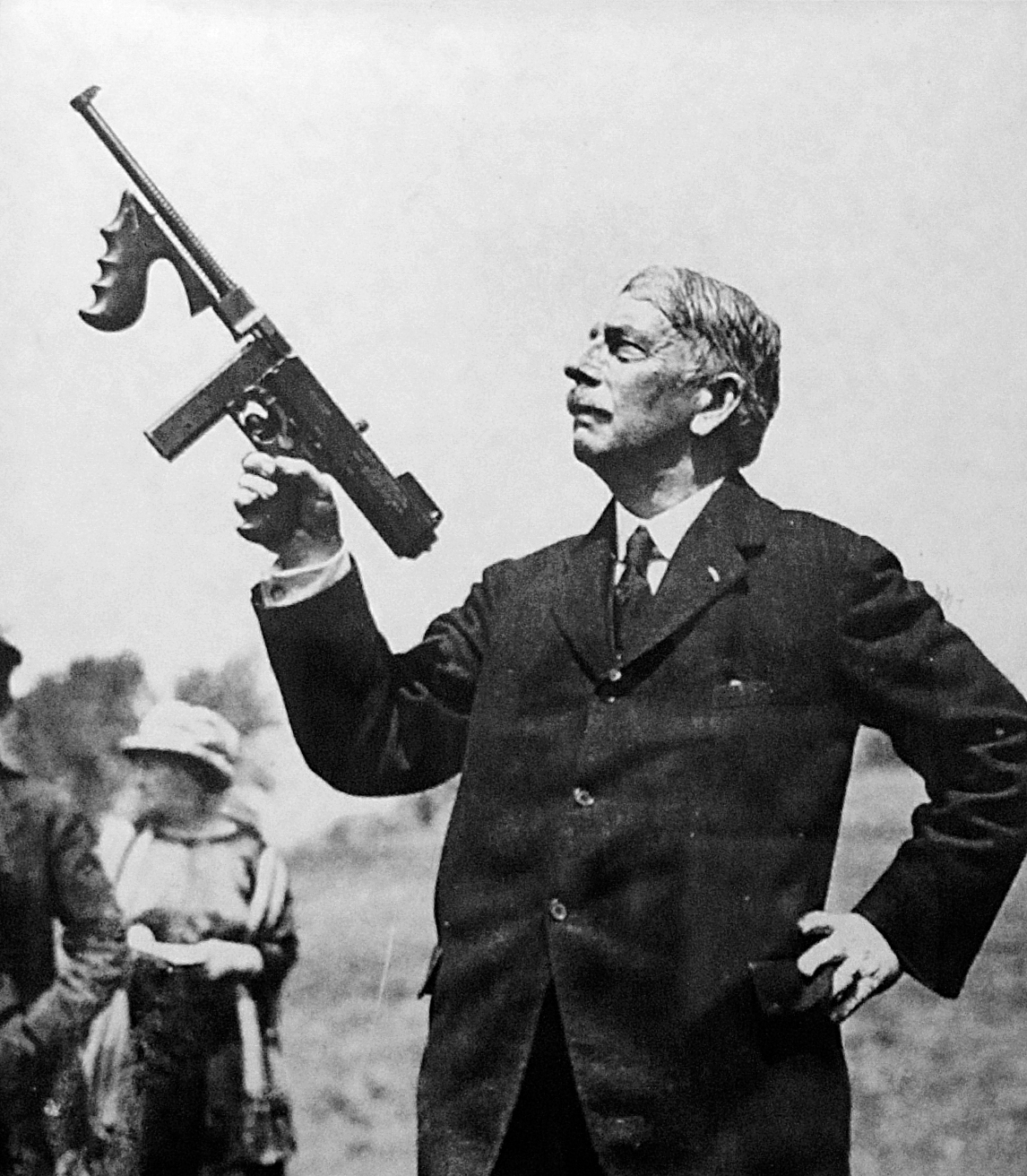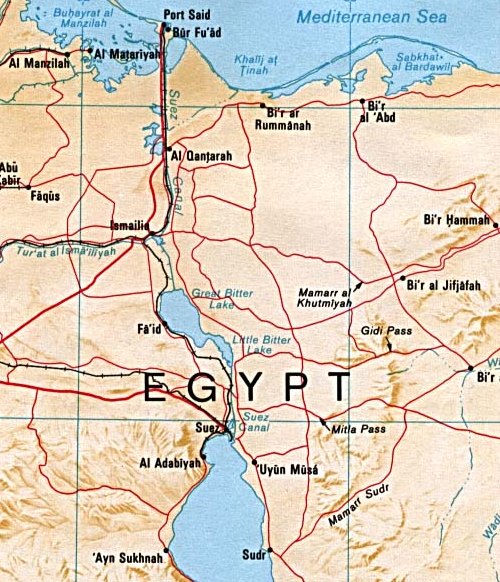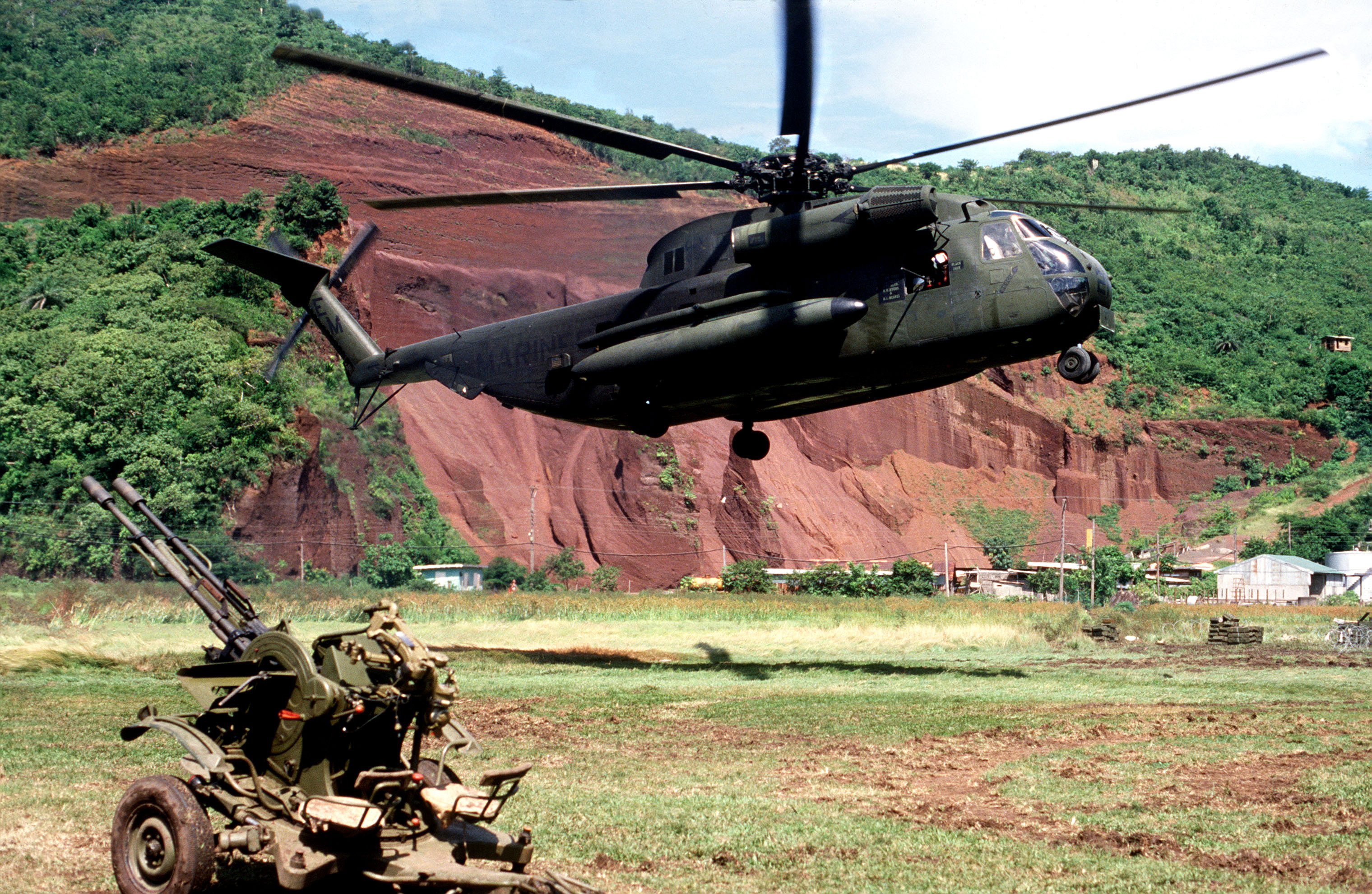|
Uzi
The Uzi (; he, עוזי, Ūzi; officially cased as UZI) is a family of Israeli open-bolt, blowback-operated submachine guns and machine pistols first designed by Major Uziel "Uzi" Gal in the late 1940s, shortly after the establishment of the State of Israel. It is one of the first weapons to incorporate a telescoping bolt design, which allows the magazine to be housed in the pistol grip for a shorter weapon. The Uzi prototype was finished in 1950. It was first introduced to Israel Defense Forces (IDF) special forces in 1954, and the weapon was placed into general issue two years later. The IDF supplied Uzis to rear-echelon troops, officers, artillery troops and tank crews, as well as a frontline weapon by elite light infantry assault forces. The Uzi has been exported to over 90 countries. Over its service lifetime, it has been manufactured by Israel Military Industries, FN Herstal, and other manufacturers. From the 1960s through to the 1980s, more Uzi submachine guns we ... [...More Info...] [...Related Items...] OR: [Wikipedia] [Google] [Baidu] |
Submachine Gun
A submachine gun (SMG) is a magazine-fed, automatic carbine designed to fire handgun cartridges. The term "submachine gun" was coined by John T. Thompson, the inventor of the Thompson submachine gun, to describe its design concept as an automatic firearm with notably less firepower than a machine gun (hence the prefix " sub-"). As a machine gun must fire rifle cartridges to be classified as such, submachine guns are not considered machine guns. The submachine gun was developed during World War I (1914–1918) as a close quarter offensive weapon, mainly for trench raiding. At its peak during World War II (1939–1945), millions of SMGs were made for use by regular troops, clandestine commandos and partisans alike. After the war, new SMG designs appeared frequently.Military Small Arms Of The 20th Century. Ian Hogg & John Weeks. Krause Publications. 2000. p93 However, by the 1980s, SMG usage decreased. Today, submachine guns have been largely replaced by assault rifl ... [...More Info...] [...Related Items...] OR: [Wikipedia] [Google] [Baidu] |
Six-Day War
The Six-Day War (, ; ar, النكسة, , or ) or June War, also known as the 1967 Arab–Israeli War or Third Arab–Israeli War, was fought between Israel and a coalition of Arab world, Arab states (primarily United Arab Republic, Egypt, Syria, and Jordan) from 5 to 10 June 1967. Escalated hostilities broke out amid poor relations between Israel and its Arab neighbours following the 1949 Armistice Agreements, which were signed at the end of the 1948 Arab–Israeli War, First Arab–Israeli War. Earlier, in 1956, regional tensions over the Straits of Tiran escalated in what became known as the Suez Crisis, when Israel invaded Egypt over the Israeli passage through the Suez Canal and Straits of Tiran, Egyptian closure of maritime passageways to Israeli shipping, ultimately resulting in the re-opening of the Straits of Tiran to Israel as well as the deployment of the United Nations Emergency Force (UNEF) along the Borders of Israel#Border with Egypt, Egypt–Israel border. In ... [...More Info...] [...Related Items...] OR: [Wikipedia] [Google] [Baidu] |
Machine Pistol
A machine pistol is an autoloading pistol capable of fully automatic fire. The term can also be used to describe a stockless handgun-style submachine gun. The term is a calque of ''Maschinenpistole'', the German word for submachine guns. Machine pistols were developed during World War I and originally issued to German artillery crews who needed a self-defense weapon that is lighter than a rifle but more powerful than a standard semi-automatic pistol. This concept would eventually lead to the development of the personal defense weapon or PDW. Today, machine pistols are considered special-purpose weapons with limited utility, with their original niche being filled with either the PDW, carbines, or simply more modern semi-automatic sidearms. Contributing to their already-fringe use, without a shoulder stock and training, machine pistols can be difficult to control for all but the best shooters. The Austrians introduced the world's first machine pistol, the ''Steyr Repetierpi ... [...More Info...] [...Related Items...] OR: [Wikipedia] [Google] [Baidu] |
Yom Kippur War
The Yom Kippur War, also known as the Ramadan War, the October War, the 1973 Arab–Israeli War, or the Fourth Arab–Israeli War, was an armed conflict fought from October 6 to 25, 1973 between Israel and a coalition of Arab states led by Egypt and Syria. The majority of combat between the two sides took place in the Sinai Peninsula and the Golan Heights—both of which were occupied by Israel in 1967—with some fighting in African Egypt and northern Israel. Egypt's initial objective in the war was to seize a foothold on the eastern bank of the Suez Canal and subsequently leverage these gains to negotiate the return of the rest of the Israeli-occupied Sinai Peninsula. The war began on October 6, 1973, when the Arab coalition jointly launched a surprise attack against Israel on the Jewish holy day of Yom Kippur, which had occurred during the 10th of the Islamic holy month of Ramadan in that year. Following the outbreak of hostilities, both the United States and the ... [...More Info...] [...Related Items...] OR: [Wikipedia] [Google] [Baidu] |
Rhodesian Bush War
The Rhodesian Bush War, also called the Second as well as the Zimbabwe War of Liberation, was a civil conflict from July 1964 to December 1979 in the unrecognised country of Rhodesia (later Zimbabwe-Rhodesia). The conflict pitted three forces against one another: the Rhodesian white minority-led government of Ian Smith (later the Zimbabwe-Rhodesian government of Bishop Abel Muzorewa); the Zimbabwe African National Liberation Army, the military wing of Robert Mugabe's Zimbabwe African National Union; and the Zimbabwe People's Revolutionary Army of Joshua Nkomo's Zimbabwe African People's Union. The war and its subsequent Internal Settlement, signed in 1978 by Smith and Muzorewa, led to the implementation of universal suffrage in June 1979 and the end of white minority rule in Rhodesia, which was renamed Zimbabwe Rhodesia under a black majority government. However, this new order failed to win international recognition and the war continued. Neither side achieved a ... [...More Info...] [...Related Items...] OR: [Wikipedia] [Google] [Baidu] |
Angolan Civil War
The Angolan Civil War ( pt, Guerra Civil Angolana) was a civil war in Angola, beginning in 1975 and continuing, with interludes, until 2002. The war immediately began after Angola became independent from Portugal in November 1975. The war was a power struggle between two former anti-colonial guerrilla movements, the communist People's Movement for the Liberation of Angola (MPLA) and the turned anti-communist National Union for the Total Independence of Angola (UNITA). The war was used as a surrogate battleground for the Cold War by rival states such as the Soviet Union, Cuban intervention in Angola, Cuba, History of South Africa#Apartheid era (1948–1994), South Africa, and the United States. The MPLA and UNITA had different roots in Angolan society and mutually incompatible leaderships, despite their shared aim of ending colonial rule. A third movement, the National Front for the Liberation of Angola (FNLA), having fought the MPLA with UNITA during the war for independenc ... [...More Info...] [...Related Items...] OR: [Wikipedia] [Google] [Baidu] |
War Of Attrition
The War of Attrition ( ar, حرب الاستنزاف, Ḥarb al-Istinzāf; he, מלחמת ההתשה, Milhemet haHatashah) involved fighting between Israel and Egypt, Jordan, the Palestine Liberation Organisation (PLO) and their allies from 1967 to 1970. Following the 1967 Six-Day War, no serious diplomatic efforts tried to resolve the issues at the heart of the Arab–Israeli conflict. The 1967 Arab League summit formulated in September the " three no's" policy: barring peace, recognition or negotiations with Israel. The Egyptian President Gamal Abdel Nasser believed that only military initiative would compel Israel or the international community to facilitate a full Israeli withdrawal from Sinai, and hostilities soon resumed along the Suez Canal. These initially took the form of limited artillery duels and small-scale incursions into Sinai, but by 1969, the Egyptian Army judged itself prepared for larger-scale operations. On March 8, 1969, Nasser proclaimed the offi ... [...More Info...] [...Related Items...] OR: [Wikipedia] [Google] [Baidu] |
Salvadoran Civil War
The Salvadoran Civil War ( es, guerra civil de El Salvador) was a twelve year period of civil war in El Salvador that was fought between the government of El Salvador and the Farabundo Martí National Liberation Front (FMLN), a coalition or "umbrella organization" of left-wing groups. A coup on 15 October 1979 followed by government killings of anti-coup protesters is widely seen as the start of civil war. The war did not formally end until 16 January 1992 with the signing of the Chapultepec Peace Accords in Mexico City. The United Nations (UN) reports that the war killed more than 75,000 people between 1979 and 1992, along with approximately 8,000 disappeared persons. Violations of the most basic human rights – particularly the kidnapping, torture, and murder of suspected FMLN sympathizers by state security forces and paramilitary death squads – were pervasive. The Salvadoran government was considered an ally of the U.S. in the context of the Cold War. During the ... [...More Info...] [...Related Items...] OR: [Wikipedia] [Google] [Baidu] |
Portuguese Colonial War
The Portuguese Colonial War ( pt, Guerra Colonial Portuguesa), also known in Portugal as the Overseas War () or in the former colonies as the War of Liberation (), and also known as the Angolan, Guinea-Bissau and Mozambican War of Independence, was a 13-year-long conflict fought between Portugal's military and the emerging nationalist movements in Portugal's African colonies between 1961 and 1974. The Portuguese ultraconservative regime at the time, the , was overthrown by a military coup in 1974, and the change in government brought the conflict to an end. The war was a decisive ideological struggle in Lusophone Africa, surrounding nations, and mainland Portugal. The prevalent Portuguese and international historical approach considers the Portuguese Colonial War as was perceived at the time—a single conflict fought in the three separate Angolan, Guinea-Bissau and Mozambican theaters of operations, rather than a number of separate conflicts as the emergent African countrie ... [...More Info...] [...Related Items...] OR: [Wikipedia] [Google] [Baidu] |
Somali Civil War
The Somali Civil War ( so, Dagaalkii Sokeeye ee Soomaaliya; ar, الحرب الأهلية الصومالية ) is an ongoing civil war that is taking place in Somalia. It grew out of resistance to the military junta which was led by Siad Barre during the 1980s. From 1988 to 1990, the Somali Armed Forces began engaging in combat against various armed rebel groups,Ken Menkhaus,Local Security Systems in Somali East Africa' in Andersen/Moller/Stepputat (eds.), Fragile States and Insecure People,' Palgrave, 2007, 73. including the Somali Salvation Democratic Front in the northeast, the Somali National Movement in the northwest, and the United Somali Congress in the south. The clan-based armed opposition groups overthrew the Barre government in 1991. Various armed factions began competing for influence in the power vacuum and turmoil that followed, particularly in the south. In 1990–92, customary law temporarily collapsed due to the fighting. This precipitated the arriv ... [...More Info...] [...Related Items...] OR: [Wikipedia] [Google] [Baidu] |
Invasion Of Grenada
The United States invasion of Grenada began at dawn on 25 October 1983. The United States and a coalition of six Caribbean nations invaded the island nation of Grenada, north of Venezuela. Codenamed Operation Urgent Fury by the U.S. military, it resulted in military occupation within a few days. It was triggered by the strife within the People's Revolutionary Government which resulted in the house arrest and execution of the previous leader and second Prime Minister of Grenada Maurice Bishop, and the establishment of the Revolutionary Military Council with Hudson Austin as Chairman. The invasion resulted in the appointment of an interim government, followed by elections in 1984. Grenada had gained independence from the United Kingdom in 1974. The allegedly communist New Jewel Movement seized power in a coup in 1979 under Maurice Bishop, suspending the constitution and detaining several political prisoners. In September 1983, an internal power struggle began over Bishop ... [...More Info...] [...Related Items...] OR: [Wikipedia] [Google] [Baidu] |
Sierra Leone Civil War
The Sierra Leone Civil War (1991–2002), or the Sierra Leonean Civil War, was a civil war in Sierra Leone that began on 23 March 1991 when the Revolutionary United Front (RUF), with support from the special forces of Liberian dictator Charles Taylor's National Patriotic Front of Liberia (NPFL), intervened in Sierra Leone in an attempt to overthrow the Joseph Momoh government. The resulting civil war lasted 11 years, enveloped the country, and left over 50,000 dead.Gberie, p. 6 During the first year of the war, the RUF took control of large swathes of territory in eastern and southern Sierra Leone, which were rich in alluvial diamonds. The government's ineffective response to the RUF, and the disruption in government diamond production, precipitated a military ''coup d'état'' in April 1992 by the National Provisional Ruling Council (NPRC).Gberie, p. 103 By the end of 1993, the Sierra Leone Army (SLA) had succeeded in pushing the RUF rebels back to the Liberian border, bu ... [...More Info...] [...Related Items...] OR: [Wikipedia] [Google] [Baidu] |
.jpg)


.jpg)






